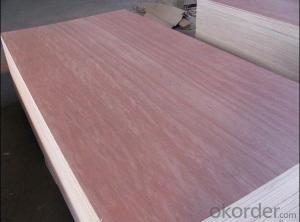When it comes to building or renovating a home, one of the most critical aspects to consider is the choice of materials. The right materials can make all the difference in the durability, strength, and overall quality of your project. One such material that has proven its worth time and time again is 3/4 inch plywood. This versatile and reliable option is ideal for a wide range of structural components, making it a favorite among builders, contractors, and DIY enthusiasts alike.
The Heart of Construction: 3/4 Inch Plywood
Plywood has been a staple in the construction industry for decades, and for good reason. Its unique construction, which involves layers of wood veneer glued together under heat and pressure, provides a strong and stable material that can be used in various applications. The 3/4 inch thickness of this plywood offers a perfect balance between strength and flexibility, making it suitable for both load-bearing and non-load-bearing applications.
Versatility at Its Best
One of the most significant advantages of 3/4 inch plywood is its versatility. It can be used for a multitude of purposes, from flooring and subflooring to roofing and wall sheathing. Its ability to be cut, shaped, and fastened easily makes it a go-to choice for many construction projects. Whether you’re framing a house, building a deck, or creating custom furniture, this plywood can handle the job with ease.
A Closer Look at the Layers
The layers of 3/4 inch plywood are designed to provide maximum strength and stability. The outer layers, known as face and back veneers, are made from high-quality wood species that resist wear and tear. The inner layers, or core layers, are constructed from a variety of wood types, which not only add to the overall strength but also contribute to the cost-effectiveness of the material.
Durability and Longevity
Durability is another key feature of 3/4 inch plywood. It can withstand a variety of environmental conditions, making it suitable for both indoor and outdoor use. This plywood is treated to resist moisture, which helps to prevent warping, swelling, and other issues that can arise from exposure to water. The result is a material that will stand the test of time, providing a solid foundation for your project.
Easy to Work With
Working with 3/4 inch plywood is a breeze. Its smooth surface makes it easy to cut, drill, and fasten, without the fear of splintering or chipping. This means that you can achieve a clean, professional finish on your project without the hassle often associated with other materials. Plus, its uniform thickness ensures consistent results, no matter the application.
Cost-Effective Choice
Choosing 3/4 inch plywood for your project is not only a practical decision but also a cost-effective one. It offers a high-quality material at a competitive price point, allowing you to achieve the structural integrity and durability you need without breaking the bank. This makes it an attractive option for both commercial and residential projects, as well as for those looking to complete a DIY project on a budget.
Sustainability and the Environment
In today’s world, where environmental concerns are at the forefront of many decisions, it’s worth noting that 3/4 inch plywood is a sustainable choice. It is made from renewable resources and is biodegradable, which means it has a lower environmental impact compared to some other materials. This makes it an eco-friendly option for those looking to reduce their carbon footprint.
The Personal Touch: Customization Options
For those who want to add a personal touch to their project, 3/4 inch plywood offers a range of customization options. You can choose from various wood species for the face veneer, allowing you to match the aesthetic of your project to your personal taste. Additionally, you can paint, stain, or laminate the plywood to achieve the desired look and feel.
The Emotional Connection: Building Memories
There’s something special about building or renovating a space with your own hands. 3/4 inch plywood allows you to create a space that is not only structurally sound but also filled with memories and personal touches. Whether it’s a family home, a community center, or a personal workspace, this material helps you build a foundation for memories that will last a lifetime.
The Final Word
In conclusion, 3/4 inch plywood is a reliable and versatile material that offers a multitude of benefits for any construction project. Its strength, durability, and ease of use make it an ideal choice for structural components. So, the next time you’re planning a project, consider the advantages of this material and how it can help you create something that will stand the test of time.

